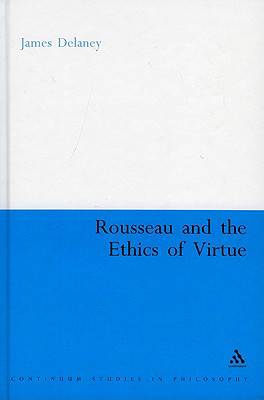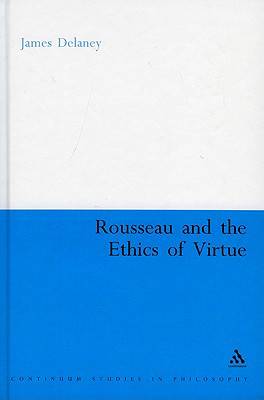
- Retrait gratuit dans votre magasin Club
- 7.000.000 titres dans notre catalogue
- Payer en toute sécurité
- Toujours un magasin près de chez vous
- Retrait gratuit dans votre magasin Club
- 7.000.0000 titres dans notre catalogue
- Payer en toute sécurité
- Toujours un magasin près de chez vous
Description
Jean-Jacques Rousseau is an enigmatic figure in many ways. There is much debate about whether he was an advocate of the Enlightenment project or a critic of it. Sometimes Rousseau seems to be arguing against traditional values and hierarchies. But elsewhere he seems to be an enemy of progress altogether. This book explains Rousseau's true place in the Enlightenment by paying particular attention to his account of virtue.
Virtue ethics is one of the main branches in moral philosophy, and its most famous advocate is Aristotle. Many recent philosophers have tried to revive virtue ethics, most notably Alasdair MacIntyre in his 1984 book, After Virtue. MacIntyre argues that the Enlightenment project was doomed to fail precisely because Enlightenment philosophers had discarded Aristotle. They do this by rejecting Aristotle's claim that all things are, by nature, directed towards some proper end. The enlightenment figures whom MacIntyre discusses at length in his critique are Hume, Kant, and Kierkegaard. And while Rousseau is mentioned as an Enlightenment thinker, very little attention is paid to him. This book puts Rousseau's ethics into historical perspective, showing that Rousseau shares important characteristics with his contemporaries as well as with the tradition of Aristotle. The dichotomy set up by MacIntyre and others between the ethics of the ancient tradition and that of the Enlightenment is oversimplified. By taking a serious look at Rousseau's ethics, we can see that he forms a bridge between these two rich traditions in the history of Western philosophy.Spécifications
Parties prenantes
- Auteur(s) :
- Editeur:
Contenu
- Nombre de pages :
- 208
- Langue:
- Anglais
- Collection :
- Tome:
- n° 14
Caractéristiques
- EAN:
- 9780826487247
- Date de parution :
- 15-11-06
- Format:
- Livre relié
- Format numérique:
- Genaaid
- Dimensions :
- 156 mm x 234 mm
- Poids :
- 417 g

Les avis
Nous publions uniquement les avis qui respectent les conditions requises. Consultez nos conditions pour les avis.






